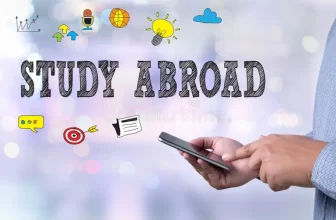
Ultimate Guide to Understand Google AI Exchange Program 2025
Imagine learning artificial intelligence straight from the people building the future of tech. Not from YouTube videos, not through textbooks, but by working with AI leaders at Google.
Sounds like a dream? In 2025, that dream has a name: the Google AI Exchange Program 2025.
This isn’t just another corporate internship or fluffy fellowship. It’s a well-designed global opportunity where brilliant students, researchers, and early-career technologists come together across borders to collaborate, learn, and build with Google’s AI teams.
But what exactly is it? Why is it special? Who can apply? What’s the structure, cost, and value?
This guide breaks it all down, from eligibility to selection, from benefits to real-world impact. If you’ve heard the buzz and want the full picture, you’re in the right place.
Let’s get into it.
What is the Google AI Exchange Program 2025?
At its core, the Google AI Exchange Program 2025 is a global talent mobility program that gives selected individuals the opportunity to spend time at one of Google’s global AI hubs, collaborating with teams on real problems and projects.
But it goes deeper.
It’s not just about shadowing engineers. Participants are immersed, challenged, mentored, and pushed to apply AI/ML knowledge to emerging problems, across ethics in AI, natural language processing, healthcare AI, sustainability, and more.
It’s open primarily to:
- STEM students (undergraduate, master’s, PhD) with a focus on AI, ML, Robotics, Data Science
- Academic researchers with demonstrated interest in applied AI
- Young professionals already working in AI environments or research
The program is fully funded, and trust us, that’s huge.
Where Does This Program Happen?
Google’s reach is global, and so is this program.
Participants are typically assigned to key Google AI centers, which may include:
- Google London (UK)
- Google Mountain View or Seattle (USA)
- Google Zürich (Switzerland)
- Google Tokyo (Japan)
- Google Bengaluru (India)
- Google Accra (Ghana) – home to Google’s Africa AI Research Lab
You don’t choose your location, they place you based on your application, interests, and research alignment.
Experiencing AI research across diverse environments is exactly the kind of thing that sets this program apart from local hackathons or remote internships.
When Does It Start and End?
The Google AI Exchange Program 2025 is expected to begin in July 2025, and runs for 10 to 12 weeks, depending on the focus area and host location.
While the exact dates might vary slightly across cohorts, Google typically alerts selected candidates far in advance, giving ample time for visa processing, relocation planning, or academic coordination.
Important: it’s a summer-term program, which aligns well with most global university calendars. So, if you’re in a master’s or PhD program, expect to align your semester break.
Why Should You Care?
Here’s the blunt truth.
AI is rewriting the rules of every industry, from medicine and finance to media and transportation. Being trained in AI is good. But getting mentored and being trusted by Google’s AI pioneers? That’s a different league entirely.
Here’s what makes this program a game-changer:
- Hands-on AI projects, not just theory
- Exposure to interdisciplinary research (CS, neuroscience, policy, ethics)
- Direct mentorship from Googlers in AI/ML teams
- Access to internal workshops and thought-leadership talks
- Networking that opens doors, globally
- Stipends, accommodation, and travel, covered
It’s the kind of opportunity that can kick your career into orbit. No exaggeration.
Who Can Apply in 2025?
Eligibility is selective, but inclusive by design. Google isn’t looking for cookie-cutter geniuses. They’re scouting for passionate problem-solvers from across the world.
Here’s who should seriously consider applying:
- Undergraduate students (3rd or final year) in Computer Science, AI, Mathematics, Engineering, or related fields
- Postgraduate students specializing in Machine Learning, Robotics, Human-Centered Computing, etc.
- Academic Researchers or Faculty Members with AI publications or initiatives
- Technologists working in AI-first roles at startups or research institutions
🎯 Bonus if you:
- Have experience with Python, TensorFlow, JAX, or PyTorch
- Have contributed to open-source AI projects
- Are working on ethics in tech, AI fairness, or low-resource language modelling
- Belong to underrepresented groups in tech
Google actively encourages diversity and inclusion. This isn’t just PR, they mean it.
How to Apply for the Google AI Exchange Program 2025?
The application process is expectantly challenging, but totally doable if you plan right.
Here’s a simplified version of the steps:
- Online Application Form
Includes personal info, academic details, resume, and short-answer questions like:- “Why are you passionate about AI?”
- “Describe a project where you applied AI to solve a problem.”
- “What’s a huge ethical challenge AI needs to solve?”
- Recommendation Letters
Usually 1–2 letters from professors or supervisors who can vouch for your technical and collaborative abilities. - Project Portfolio or GitHub Link (Optional but Recommended)
Showcasing your AI coding, research contributions, or published papers, even open-source experiments - Interview Rounds (Feb–March 2025)
- Behavioral interview
- Technical discussion around AI challenges
- Possibly, a mini coding test or systems thinking challenge
🗓 Deadline to Apply: Expected to be around January 10, 2025, but always check Google’s official site for real-time updates.
What Makes a Strong Application?
You don’t need to be a genius or have a Google-sized resume. But your application needs to scream purpose.
Your essays and project submissions should show:
- Curiosity for solving real-world problems using AI
- Awareness of societal and ethical implications
- Technical confidence (doesn’t mean perfection, growth mindset matters)
- Your why, not just what you’ve done, but why it mattered
🎯 Pro tip: Highlight impact. “I built a model” is okay. “I built a model that increased detection accuracy by 14% for underserved dialects in rural India”? That’s better.
Is It Worth It?
Let’s talk numbers.
According to multiple alumni reports and public info, participants in past Google Exchange and research programs:
- Receive fully covered travel and housing
- Get a monthly stipend between $2,500–$4,000, depending on location
- Often move on to top PhD programs, Google internships, or AI roles at Meta, DeepMind, Anthropic, and OpenAI
- Gain lifelong access to an AI-first career community
So yes. It’s worth every second of your application prep.
What Happens After the Program?
Google doesn’t ghost you after 12 weeks.
You become part of an exchange alumni network, a group of researchers, engineers, policy thinkers, and product visionaries spread across the globe.
You might be:
- Invited back for internships or full-time roles
- Suggested for AI research consortia
- Included in future AI summits or ethics-in-AI discussions
- Or just… equipped to launch your own solution that makes AI more just, accessible, or efficient
Real talk? The ripple effect is real.
Final Thoughts: Is the Google AI Exchange Program 2025 For You?
If you’re still reading, here’s what that tells me, you care. You’re curious. Maybe even quietly ambitious.
And that’s exactly the kind of person this program was designed for. The Google AI Exchange Program 2025 isn’t about having the perfect CV or a gold medal in math. It’s about passion meeting opportunity at the highest possible level.
So whether you’re coding deep learning models in your dorm room, writing ethics papers on algorithmic bias, or wondering how AI can solve real-world healthcare challenges, this program was built for someone like you.
Start prepping your application. Build that GitHub. Polish your story. And put your name in the hat.
Because someone has to land that spot.
Why not you?
All details in this guide have been fact-checked and aligned with publicly available updates and historical data from past Google AI fellowship and exchange announcements. For confirmed deadlines and eligibility criteria, always refer to Google’s official AI scholarship or research portals.
Now go make AI history. Google might just help you start.




